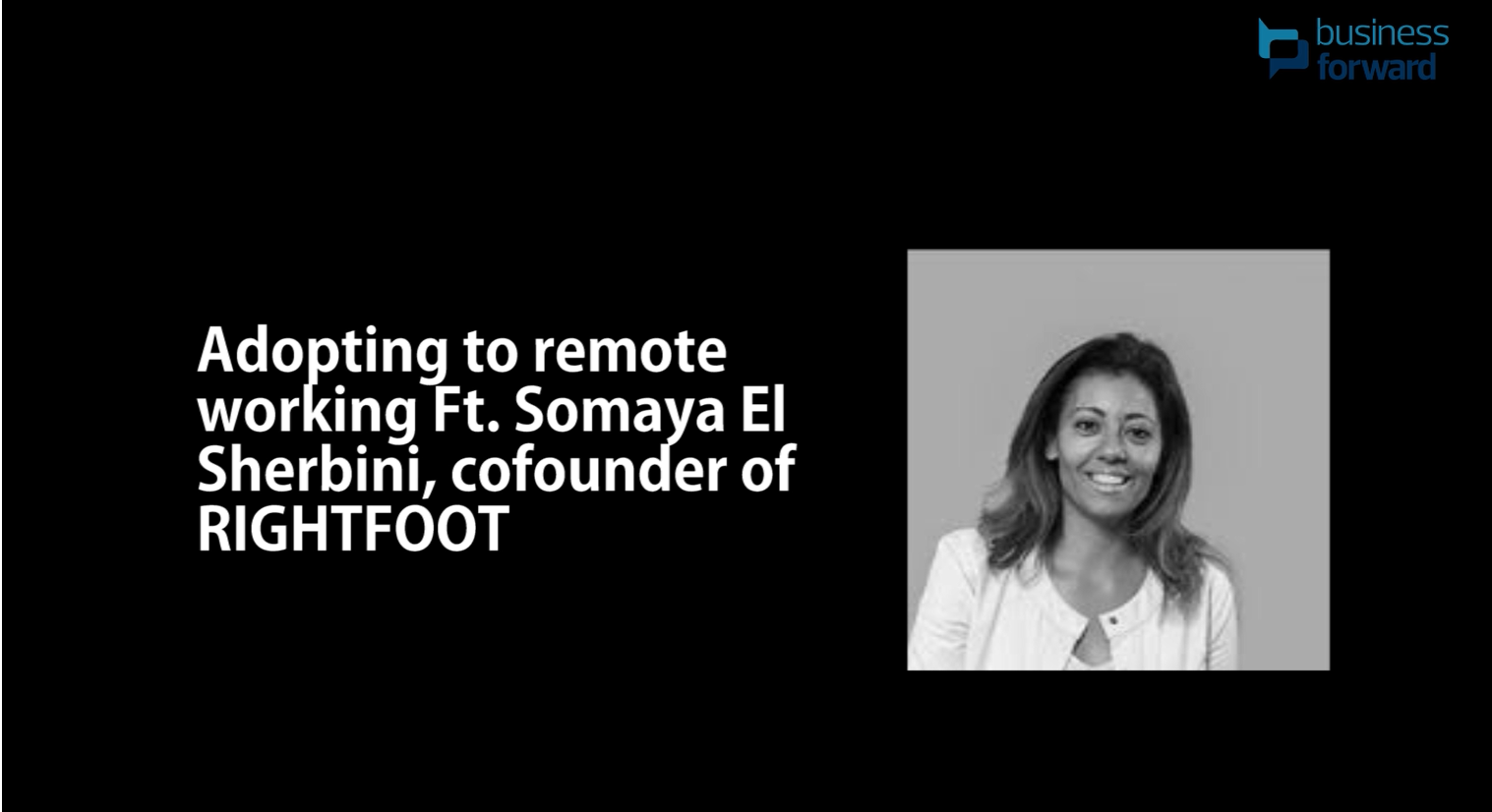Crises take us by surprise and without letting us know or asking for permission, they just arrive. And as with COVID-19, when they do hit the workplace and disrupt all the office dynamics, managers play an important role of bringing a sense of normal to this new phase, which is very likely to continue for some time. Somaya El Sherbini, co-founder of RightFoot, talent management consultancy firm, talks about managing team remotely.
Going virtual
The underlying necessities of this phase are staying connected and engaging with the team. The online talk that every manager should have with their team during this emergency phase should not be underestimated. With so much unknown, teams need to talk together on a human level – not just a professional one. Your team needs to feel that as a manager you care. You understand and are addressing what is on their minds, and believe it or not, teams rely on this guidance to adjust their work rhythm.
Managers will share with their teams specific objectives and required results, and more importantly will create the space and time for them to come together to listen to the messages, to ask questions, constitute ideas and take ownership of specific objectives. Creating a safe environment where team-members do not feel intimidated to ask questions or share their views is as vital as ever.
As you capitalize on all the online communication tools available to you, try to make them as interactive as possible. Switch on the camera to allow for some human interaction that we are often obliged to miss on during critical work discussions and decisions. Encourage the team to use instant communication tools that allow for a flowing dialogue – such as messaging groups and phone calls, but do not drop the step of formalizing conclusions through official emails. Go back after the discussion to email, asking the person owning the task to send a summary of the conclusions and action points.
Measuring productivity
In measuring productivity, the key here is trust. It will be difficult to monitor the process, but your review as a manager will be based on outcomes. We are forced to be open to new work modalities. While it might be a concern that teams will be working less than their pre-COVID levels, El Sherbini believes that it has never been about the eight hours spent in the office. It is about the measurable outputs. So, this is an opportunity to manage the phase with a task-oriented approach and drifting away from having to see employees (who might or might not be contributing in the right levels) at their desks.
70:20:10 theory of learning
El Sherbini believes in the 70:20:10 theory of learning that tells us that 70 percent of learning happens on the job. Interestingly, 20 percent of learning is acquired from interactions with other people, and only 10 percent happens in a formal classroom setting. Based on this, matching team members together on common projects comes handy in the manager’s toolbox. Identify a subject expert in the team and put them together with one or two people who need support on a work challenge. Here, everybody is a winner. The subject expert feels elevated and peer support is put to work to address an obstacle.
Even in uncertainty, there is always a chance to learn, with so many digital learning opportunities availing themselves these days. Continue to observe and have discussions with your team about the skills they need to build, respecting that people understand themselves very well, and need to own their learning objectives in order to achieve them.
The growth mindset vs. the fixed mindset
Encourage people to be open to learn from each other and promote a growth mindset rather than a fixed mindset. El Sherbini explained that a person with a fixed mindset limits their own learning by worrying about how they are perceived and find difficulty in finding fault or room for improvement in any work they do. The concept of the growth mindset embraces hard work, but with keeping the senses open to new ideas, with never undermining inputs from others. This is how you can work smarter and more efficiently.
Managing conflict
Conflict is still prone to happen even remotely, especially with the new work dynamics that make monitoring the work process and the individual inputs harder to keep track of. It becomes the responsibility of the manager more than any other time to highlight group excellence. The team manager is the best ‘seller’ for the team’s achievements. When the team delivers efficiently, the manager has achieved. So, in conflict, the manager needs to talk to the impacted person, and then to the group. As mentioned previously, showing that thoughts and feelings within the team are understood goes a long way.
This article is based on a webinar titled “Adapting to Remote Working”, led by Somaya El Sherbini, co-founder of Right Foot Solutions and Services Consultancy firm, and organized by the American University in Cairo’s School of Business Executive Education program in April 2020.. In the webinar El Sherbini speaks about how managers and their teams could embrace remote working and agile learning in the current protracted situation of the lock-down. El Sherbini had a long career at Microsoft across several countries before she shifted to entrepreneurship. She is also an elected Chair of the Human Resource Committee of the American Chamber of Commerce.









